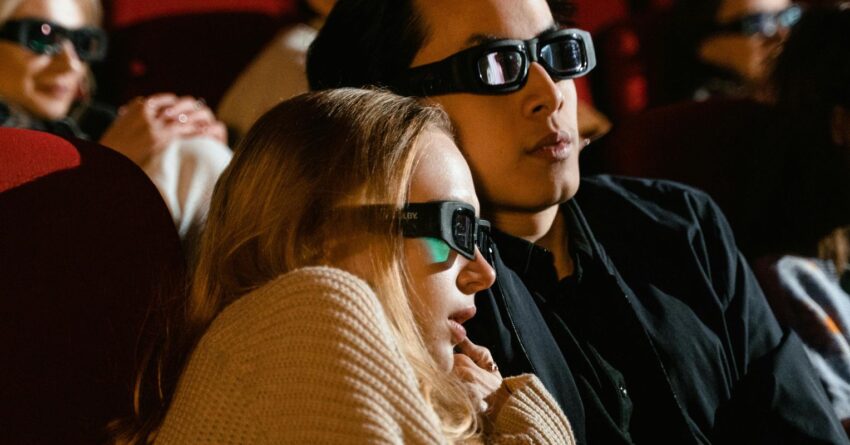Are you the type of person who enjoys the thrill of a good horror movie? Or perhaps spooky films are more likely to give you nightmares? Love them or loathe them, most people have an opinion about scary movies.
During this Halloween season, many enjoy watching the latest horror flicks or rewatching classics such as Nosferatu, Jaws, and Poltergeist. What are the physiological and psychological reasons behind the desire to be scared?
What is horror?
The word “horror” derives from the Greek word phryke (“shudder”) and describes the spine-tingling physical manifestations of shivering, shuddering, and getting goosebumps (Martin, 2019). Nowadays, horror refers to our emotions, those intense feelings of fear, shock, or disgust. There are two types of horror. A genuine sense of horror is a protective mechanism that is intended to make us feel afraid because it is advantageous to our survival. Then there is “art horror,” the fictional kind, that is created for entertainment purposes. This refers to novels, stories, plays, video games, or movies that explore forbidden, evil, and violent aspects of life (and death). Fictional horror is marked by the presence of the paranormal or the unknown and is often centered around a villain or monster, especially supernatural creatures such as demons, vampires, werewolves, and zombies.
Horror movies impact our minds. They are designed to evoke fear, shock, and disgust, and are intended to disturb, frighten, scare, or even repulse us. They impact our bodies, too. Watching horror can cause unpleasant physical reactions, including anxiety, increased heart rate and blood pressure, insomnia or nightmares, intrusive thoughts, and in some extreme cases, it has been reported to cause a type of trauma known as “cinematic neurosis.” (Ballon et al., 2007)
Then why do so many people love horror movies?
The science of scary movies
Horror has been with us since the earliest recorded culture, notably classical Greek tragedies, which are full of violence, gore, and terror. People enjoyed these dramas for the “catharsis,” the purging of pent-up emotions like fear and pity that led to a sense of renewal. Today, people still enjoy this type of terror, particularly in horror movies, whether it’s a modern sub-genre like a slasher, a haunted house, or found footage film. People enjoy watching scary movies for a variety of reasons. Horror can give rise to negative feelings, such as fear and anxiety, but also positive feelings, including excitement and even euphoria.
Horror movies are stimulating. Watching them can trigger our fight-or-flight response, releasing a rush of adrenaline, endorphins, and dopamine. These feel-good chemicals dull pain, excite mood, and create a natural high, which can become somewhat addictive for sensation seekers. Rather like the idea of “catharsis,” modern studies suggest that part of the attraction of watching horror is the feeling of suspense and tension, and then the resolution of that suspense and tension (Zillman, 1996).
Horror movies are also a way for us to simulate threat and danger and mediate fear. (Clasen et al., 2020) Being frightened in a controlled environment can be fun. It would be terrifying to encounter a true vampire or a werewolf; alternatively, watching Dracula or The Wolfman provides us with a manageable experience that (probably) won’t happen in real life. There is a psychological distance when we watch horror. We know what we’re watching is not real, or at least, some parts of our brain know it isn’t real.
Horror has always been a reflection of our social and cultural fears. It has even been theorized that watching horror may help us to practice coping strategies and prepare us for worst-case scenarios, to navigate that demonic possession, alien invasion, or zombie outbreak. When that threat is real, horror fans may find that they’re better equipped to cope with the stress. One study suggested that participants who enjoyed pandemic-related horror were more psychologically prepared for, and resilient during, the COVID-19 pandemic. (Scrivner, 2021)
Finally, watching horror is a social experience that helps us to connect with others. Horror movies bring together family and friends to bond over a new film or old favorites such as “The Amityville Horror,” “Night of the Living Dead,” and “The Exorcist.” The shared experience of facing fear together can lead to feelings of safety and also physical and emotional closeness.
With all of this in mind, we can happily continue to enjoy the tradition of watching horror movies during this Halloween season, or at any time of the year.
